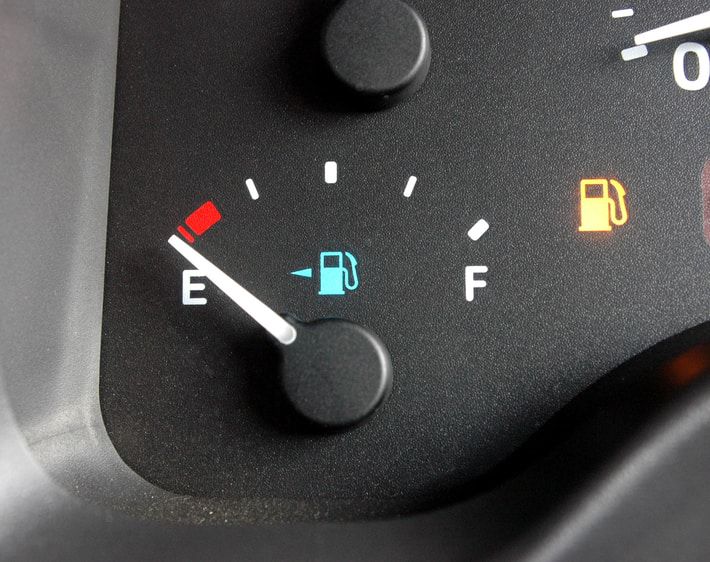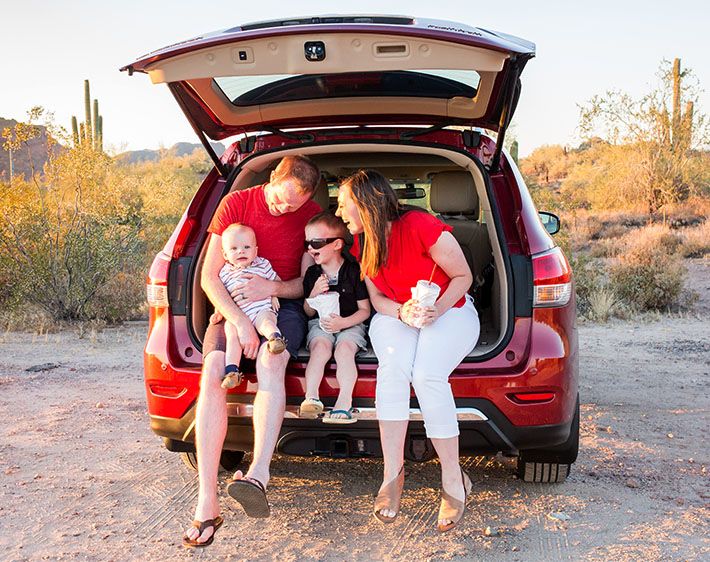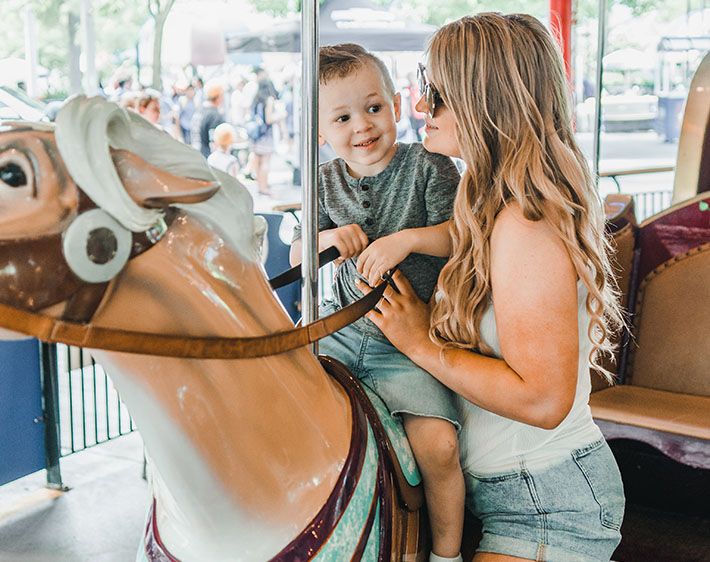You know your car inside and out. Like the back of your hand. Like your favorite pair of pants. That "E" on your fuel gauge? You've still got miles to go before you run out of gas... or do you? It's all fun and games until you actually run out of gas, which can be more than an annoyance. Running out of gas can damage your car.
Today's vehicles have specific parts and pieces that help push fuel to your engine. When there isn’t any fuel left, these components can break down pretty quickly. Here’s what happens under the hood when you run out of gas, and what you can do to help prevent it in the future.
When You Run Out of Gas
The fuel pump could be damaged.
A fuel pump’s name is also its job–it sits in your fuel tank and pumps gas to the engine, so your car moves when you press the gas pedal. And since your fuel pump relies on gas to stay cool and well-lubricated, it can get overworked and even overheat when your gas tank is empty.
To make sure your fuel pump lasts as long as the vehicle manufacturer intended, try to never let your gas tank get below ¼ full.
The fuel injectors may clog.
Airborne debris and impurities in gas can create sediment that collects at the bottom of your gas tank. Your fuel filter is responsible for filtering out all that bad stuff so that it doesn't make its way into the engine. But when your fuel level gets too low, those impurities can get pushed through your fuel lines and clog the fuel injectors, the tiny nozzles that spray gas into your engine.
A damaged fuel pump or fuel injector might not display symptoms right away; however, if your car ran out of gas and now won’t stay running, the problem is likely related to one of these two parts.
After refilling your gas tank, try turning the key to the "On" position (turning on the electronics without cranking the engine) and then back to "Off" a couple of times to prime the fuel pump. Priming the fuel pump will help remove air that may have entered the fuel lines as a result of running out of gas.
If priming the fuel pump doesn't help start the vehicle and keep it running, you may want to invest in a fuel system inspection and cleaning. A qualified technician can clean out clogged fuel injectors and restore power to your engine. If the injectors are left plugged up too long, though, there's a chance you'll have to replace them (which is a bummer, since most modern fuel injectors are designed to operate for about 100,000 miles).
So, now that you have a better understanding of what happens to your car when you run out of gas, find out what happens in the driver’s seat. There are a few changes that you’ll notice immediately.
Your vehicle will stall.
When you completely run out of gas, your car shuts down as if you took the key out of the ignition while driving. That shutdown poses a serious risk for many reasons. Not only can it cause you to become distracted, but a change this sudden can cause mental panic and dangerous driving. And let’s face it, you probably don’t have a safe exit plan to get off the road in case your car suddenly dies.
Braking and steering will feel harder.
Your brakes won't necessarily stop working when you run out of gas, but the brake pedal will feel much heavier and harder to push down. Your brakes are power assisted and use hydraulics to transfer power from the brake pedal to the brake pads. But when your engine shuts off, this feature shuts off, too. Without a little hydraulic help, it's going to take a lot more leg power to stop your car.
Something similar happens to your steering wheel. It will still function if your engine dies, but your power steering won’t work, so you'll probably need to use two hands and plenty of elbow grease to crank that wheel. If you’ve ever tried to turn your steering wheel while your car is off, then you know how difficult this can be.
What to Do When You Run Out of Gas
Pull over.
When you run out of gas, the first and most important thing to remember is to stay calm. Find a safe place to pull over where there’s no risk of getting hit. If possible, exit the highway and find a parking lot or other open area free of traffic.
Avoid the left side of the road, which exposes you to the fast-moving traffic in the passing lane. Instead, pull onto the aptly-named “breakdown lane” on the right. Look for wider shoulders and straightaways.
Turn on your hazard lights.
Your hazard lights were made for this is the type of situation! Turn on your hazard lights when your car becomes a temporary hazard and you’re waiting for assistance. The lights help warn other drivers of your presence, especially if you are not able to move your car out of traffic.
Call for help!
If you have roadside assistance through your insurance company or vehicle manufacturer, now is an excellent time to utilize their services. If you don’t, consider calling Firestone Complete Auto Care Roadside Assistance at 877-799-8779, or a friend or family member to bring you fuel. Fluid delivery and towing service are available 24/7 through Firestone Roadside Assistance.
If it's safe to do so, you can also walk to the nearest gas station. Most gas stations stock emergency fuel cans if you don't have one in your trunk. A one-gallon gas can should hold enough fuel to get your car to the next station to fill up.
How to Avoid Running Out of Gas
The easiest way to avoid running out of gas is to keep gas in your car! But life happens, and sometimes you let your tank get a little too low. One best practice is to know your route. Whether you’re driving to work or out of town on a long road trip, make sure you know where the gas stations are along the drive. And remember our rule-of-thumb for saving your fuel pump: don’t let your gas tank get below ¼ full.
If your car has run out of gas, (especially more than once), stop by your nearest Firestone Complete Auto Care for a Complete Vehicle Inspection. We'll let you know if any damages occurred that need repair.



